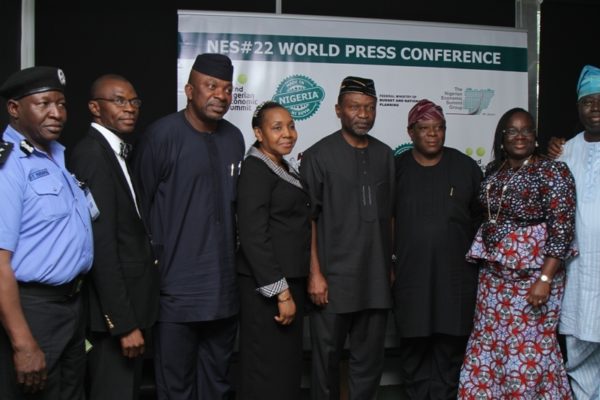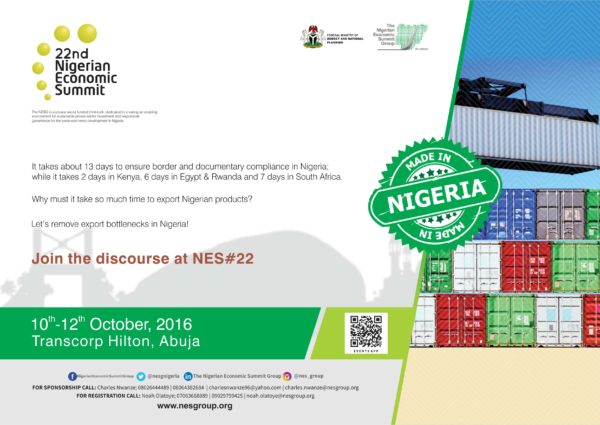
The Nigerian Economic Summit Group (NESG) has highlighted the need to embrace self-sufficiency as a viable alternative to improve Nigeria’s dwindling economy. The Group made the call during a press conference organised in Lagos to announce the 22nd Nigerian Economic Summit. The summit appropriately themed ‘Made in Nigeria’, is scheduled to hold from the 10th to 12th October at the Transcorp Hilton Hotel, Abuja .
Speaking during the press conference, CEO, Nigerian Economic Summit Group (NESG) Mr Jaiyeola Laoye, described the Made in Nigeria initiative as an economic growth and development strategy for Nigeria’s short, medium and long term development. Jaiyeola explained that Nigeria’s status as an import dependent and a huge consumption economy has led to negative economic growth, dwindling foreign reserves, and pressure on local currency exchange rate relative to major currencies.
Commenting on the rationale behind the theme ‘Made in Nigeria’, Jaiyeola maintained that the theme is not only necessary and timely, but will also be used to embody the imperative to commit to the structural and fiscal changes required to strengthen the Nigerian economy.
“Past editions of the Nigerian Economic Summit have made recommendations on self-sufficiency in local production and an export-driven economy. With our current economic realities, the NESG realises that this is the perfect opportunity to articulate a national discussion on ‘Made in Nigeria’ to promote the goods and services that are already up to standards for consumption, encourage exports and increase opportunities for SMEs,” he added.
Setting an agenda for the summit, foremost business consultant, financial analyst and columnist Opeyemi Agbaje, CEO, RTC Advisory Services Limited, commended the choice of this year’s theme, describing it as a step in the right direction, as long as the sentiments are objectively articulated.

Opeyemi observed that the country still needs to work on getting its policies right “For me, we still have to get our policies right, for example there should be discussions about attracting investors, which I would love to see addressed at the summit, secondly the foreign exchange conundrum needs to be fine-tuned.”
“We have spoken extensively on oil dependence, but I say that, Nigeria’s economy is diversified, since the contribution of the oil sector is reducing drastically as we have seen non-oil sector make significant contributions to the country’s GDP. However, Made in Nigeria for me means a very strong domestic non-oil sector, which comprises agriculture, manufacturing, tourism, education and other industries in Nigeria, exporting to the world. So in the end, we don’t just stop import, but we ensure to sell our made in Nigeria product, services and ideas to the world,” he concluded.
The 2016 Nigerian Economic Summit, NES #22, will provide a platform to sharpen the focus on the need for Nigeria to embrace the Made in Nigeria initiative by working out strategies to achieve self-sufficiency and value-addition capacities for several products and services in the shortest possible time. NES #22 will also facilitate stakeholders’ discussions/agreements on the practical issues, opportunities, policies and regulations needed for ‘Made in Nigeria’ to become an economic growth and development agenda.















